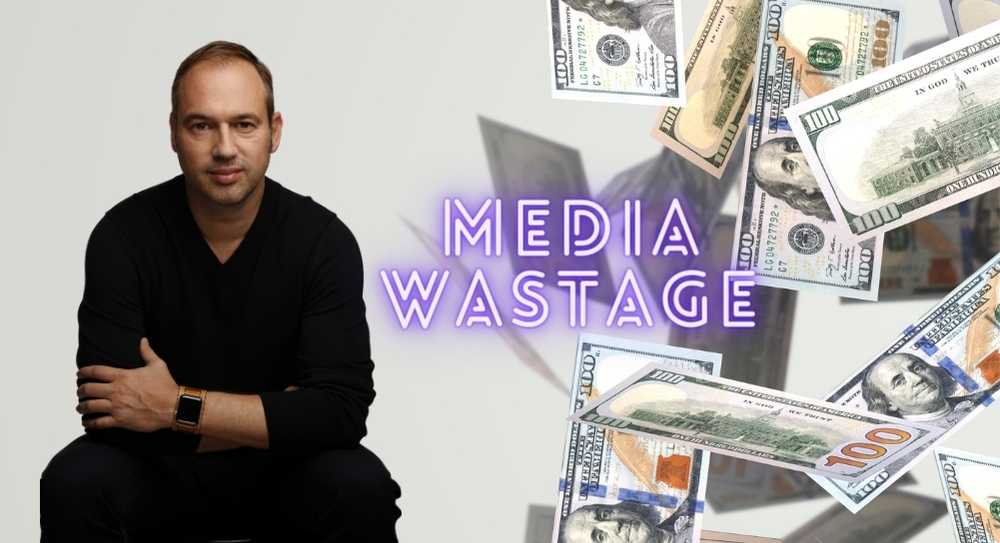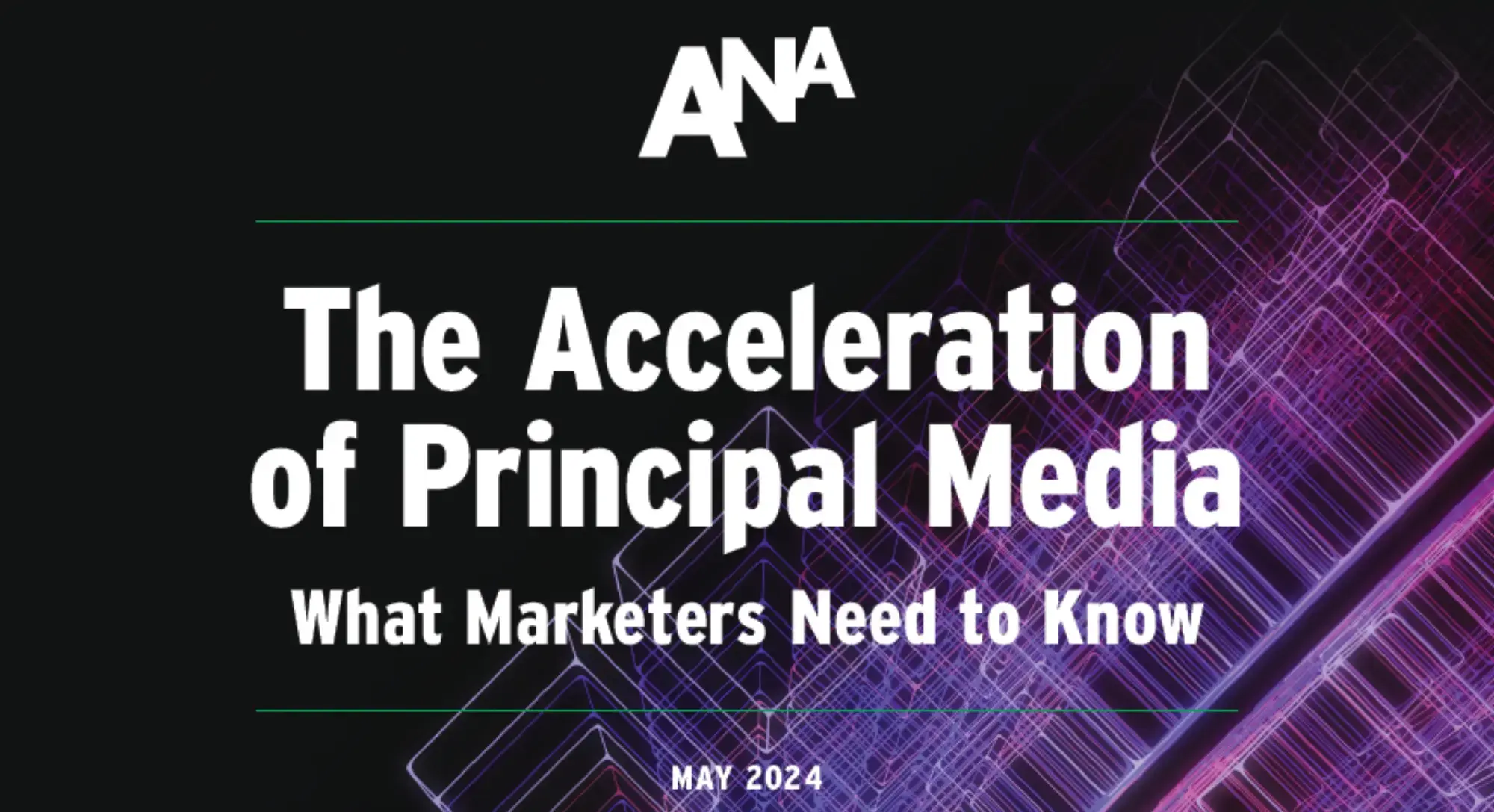John Wanamaker, a marketing pioneer, once famously said, "Half the money I spend on advertising is wasted. The trouble is I don't know which half." This sentiment, expressed over a century ago, sadly still resonates deeply within the advertising industry today.
Media wastage is a pressing concern for advertisers worldwide, affecting both online and offline channels. Its impact goes beyond financial losses; it directly influences the effectiveness of advertising campaigns, as measured by the Return On Advertising Spend (ROAS) metric.
At Abintus, we understand the gravity of this issue. Our mission is clear: "We specialise in helping advertisers reduce media wastage and improve ROAS." As we explore this subject further, our goal is to shed light on the complexities of media wastage, and provide practical insights to transform potential losses into quantifiable gains.
Understanding Media Wastage
Media wastage occurs when a portion of an advertising budget fails to achieve its intended purpose. This can happen for several reasons, such as not effectively reaching the target audience, or due to challenges within the media buying process, like a lack of transparency in the media supply chain.
To grasp the scale of the issue, consider these real-world statistics:
- An estimated £7 billion of global advertising spend fails to engage consumers each year.
- Around 54% of all online display ads are not viewed by humans due to factors like fraud, viewability, or being served outside of the target audience.
- Traditional media channels, such as print and television, also grapple with wastage rates, with some estimates suggesting that up to 60% of TV ad budgets are spent on viewers outside the target demographic.
What Causes Media Wastage in Advertising?
One primary reason is poor media planning. Without a clear understanding of their audience, advertisers might display ads to those uninterested in their offerings, leading to wasted spend. Similarly, using the wrong media channels for a specific audience, such as advertising on a platform popular among teenagers when targeting middle-aged adults, can lead to inefficiencies. Timing, too, plays a crucial role. An ad for breakfast products at midnight, for instance, is unlikely to resonate.
Digital advertising also faces challenges like ad fraud, where dishonest activities, like bot traffic, eat into the budget. Moreover, if ads aren't tracked and optimized, money could be poured into ineffective tactics. Issues like non-viewable impressions, where ads aren't seen due to factors like ad-blockers or slow loading times, further contribute to wastage.
Transparency, or the lack thereof, in the media landscape is another significant concern. Unresolved issues like Agency Volume Benefits (AVBs) and Unbilled Media can lead to advertisers paying for value they didn't fully receive. It's vital for advertisers to maintain transparent relationships with media agencies and regularly review buying practices. Additionally, ensuring competitive media pricing and holding agencies accountable through mechanisms like Performance-Related Fee (PRF) contracts can further mitigate wastage.
Some Concrete Examples of Media Wastage
Given that media budgets often reach staggering amounts in the millions, the financial consequences of media wastage are significant. Each misallocated or misused penny not only results in a direct financial loss but also signifies a lost chance to connect with potential customers and stimulate business growth. Here are some concrete examples of media wastage we uncovered while working with our clients:
1. Incorrect Media Mix:
Based on our extensive experience at Abintus, we have come across numerous instances where media wastage occurs due to an incorrect media mix. One specific case involved conducting a thorough review of a client's media plans and strategies. Upon examination, we discovered that a portion of their media budget was allocated to platforms that did not align well with their target audience.
Further investigation revealed a significant oversight in the media strategies: the absence of a thorough analysis of the target audience's media consumption habits. This analysis is crucial as it provides valuable insights into the audience's media preferences, including their consumption patterns during weekdays and weekends. Without this foundational analysis, the media mix recommendations appeared to be based more on trust rather than solid empirical evidence.
We also discovered a disconcerting trend. A significant portion of the questionable media turned out to be proprietary media, which provided minimal value to the client. Due to the absence of a robust media planning and buying process, the client was essentially investing in media that served little purpose.
This case underscores the importance of a data-driven approach to media strategy. By ensuring that media decisions are grounded in solid audience analysis, advertisers can avoid the pitfalls of an incorrect media mix and the subsequent wastage it entails.
2. Lack of AVBs:
In our work at Abintus, we've often delved into the intricacies of client contracts and financials. One particularly telling instance involved a client who, across all their markets, hadn't received any cash Agency Volume Bonuses (AVBs) from their media agency. Upon closer inspection, it was evident that their media agency contracts, which were based on a standard agency template, did not encompass provisions for AVBs or cash rebates.
This oversight was not simply a contractual oversight. It revealed a deeper issue: the client's lack of awareness regarding the importance of AVBs. For those who may not be familiar, AVBs are essentially rebates or discounts offered to agencies by media owners for making bulk purchases. Throughout history, as agencies increased their spending with media owners, they would receive incentives, often in the form of cash or additional advertising space.
In the case of our client, their lack of savviness meant they were inadvertently forgoing a substantial amount of cash that rightfully belonged to them. This cash could have been reinvested to amplify their media activities.
3. Lack of Viewability Tracking:
In the fast-paced realm of digital advertising, the appeal of programmatic digital display, especially when presented at seemingly unbeatable prices, can be alluring for many advertisers. Nevertheless, as the well-known saying goes, "if it appears too good to be true, it probably is."
During an audit for one of our clients at Abintus, we discovered some concerning findings. Despite their significant investment in programmatic digital display, there was a noticeable lack of tracking mechanisms for fraud, brand safety, and viewability. The reports they received from their media agency were, to put it lightly, underwhelming.
Our subsequent analysis revealed concerning findings. A significant portion of their digital display investment was plagued by fraudulent activity, failing to reach the intended audience, or simply going unseen. This had clear implications: the majority of their digital advertising expenditure was essentially wasted.
Essentially, without strong processes in place to comprehend and monitor performance, advertisers risk losing significant amounts of money. It is crucial for them to be equipped with the necessary tools and knowledge to navigate the complex world of digital advertising, guaranteeing that their investments yield tangible outcomes.
Strategies to Minimise Media Wastage
While we've highlighted a few instances of media wastage, it's essential to understand that these are merely the tip of the iceberg. There are countless scenarios where media budgets are squandered, often without the advertiser's knowledge. However, the silver lining is that with the right strategies, this wastage can be significantly reduced, if not entirely eliminated. Here are some pivotal strategies that can be employed to ensure your advertising budget is utilised to its utmost potential:
Get a Best-in-Class Media Agency Contract in Place:
One of the foundational steps to curbing media wastage is to have a robust media agency contract. This contract acts as a safeguard, ensuring that your media investments are protected and utilised efficiently. It's not just about having a contract; it's about having one that is comprehensive, transparent, and holds the agency accountable for every penny spent.
At Abintus, we are here to support you on this journey. We offer a complimentary review of your media agency contract that aligns with your goals and values.
Implement an Effective PRIP Scheme:
Performance-Related Incentive Payment (PRIP) schemes can be a game-changer. By incentivising media agencies to outperform and deliver on their commitments, you not only get the best out of them but also ensure that there's a financial penalty if they fall short. This dual-edged approach ensures that your agency is always on its toes, striving to provide the best value for your money.
Based on our experience, we have observed that advertisers who implement an effective PRIP scheme tend to experience significantly reduced levels of media wastage compared to those who do not have such a system in place with their media agencies.
Tackle Ad Fraud Seriously:
Ad fraud is a silent killer in the digital advertising space. It is crucial to implement the necessary measures to protect your budget from fraudulent activities.
By having the right partners and processes in place, you can effectively detect and prevent ad fraud, ensuring that your ads reach real users instead of bots or fraudulent entities.
Additionally, it is equally important to ensure that your media is viewable by your target audience. After all, what's the point of paying for an ad that's never seen?
Ensure Your Media Prices are Competitive:
Media prices can vary greatly, so it is important to make sure you are not paying more than necessary for media spaces. Based on our extensive experience in international media auditing, we have observed that prices for the exact same media inventory can vary by up to 70% in different markets.
By consistently benchmarking and comparing prices, you can guarantee that you are obtaining the optimal value for your investment. Keep in mind that it is not always about securing the lowest rate, but rather about achieving the most effective rate. Prioritizing effectiveness should always come before efficiency.
Independently Track Your Media Performance:
It is essential to have an independent tracking system in place to ensure an unbiased evaluation of your media performance. Relying solely on your media agency for tracking can be compared to a student grading their own exam, which may introduce inherent bias and the possibility of overlooking critical issues.
Independent partners, like Abintus, can assist you in designing, developing, and implementing a tailor-made media performance tracking solution into your own environment. Once implemented, this system becomes your own, ensuring that even if you decide to change media agencies in the future, you won't lose valuable historical information about your media performance metrics and KPIs.
Conclusion & Next Steps
The advertising landscape, with its myriad channels and ever-evolving technologies, offers immense opportunities for brands to connect with their audiences. Yet, the very complexities that offer these opportunities also present challenges, with media wastage being a prominent concern. As John Wanamaker's words remind us, the issue of wasted advertising spend is not new, but its implications in today's digital age are more significant than ever.
The strategies highlighted in this article are not exhaustive but serve as a starting point for advertisers to critically assess their media investments. By understanding the root causes of media wastage and implementing proactive measures, advertisers can ensure that their budgets are not just spent, but spent wisely.
At Abintus Consulting, our commitment is to guide advertisers through this intricate landscape, ensuring that every pound, dollar, or euro spent on advertising is an investment, not an expense. We believe that with the right knowledge, tools, and partners, advertisers can transform the challenge of media wastage into an opportunity for growth and success.
Take the first step towards a transparent, efficient, and successful media buying experience by contacting us today. If you are looking to assess your current position, our team of experts can meticulously examine your media agency contracts to ensure they align with industry best practices. With our expertise, brands can make informed decisions and foster successful relationships with their media agency partners.
Media Auditing Guide: Click Here
Media Agency Pitch Management Guide: Click Here
--------------------------------------------------------------------------------
Author Expertise and Experience:
Philippe Dominois is co-founder and CEO of Abintus Consulting, and Head Coach at the Abintus Academy. He has over 25 years of international media experience, having worked on the media agency side, client side, and media auditing side throughout his career. Philippe has authored hundreds of articles over the years that focus on media management best practices.



